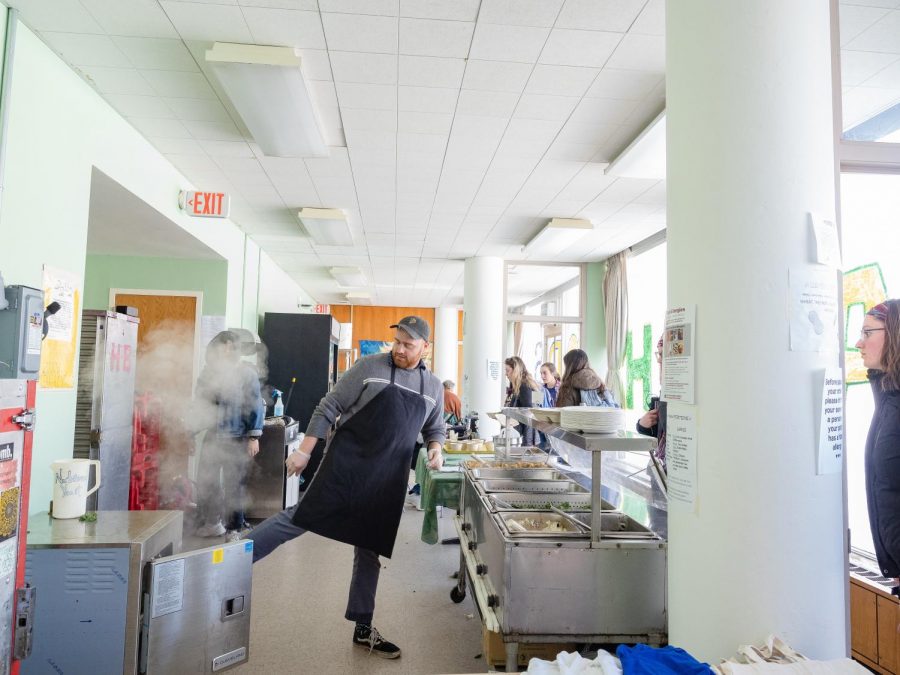By: Naychelle Lucas
Special to the Collegian
Laundry for the month: $20. Ink for your printer: $60.99. Gas to get home for the weekend: $30. The single teardrop that glides down your cheek when you go to the ATM: priceless.
SOAPnet’s new show “Bank of Mom and Dad” highlights young women whose weakness for designer shoes, gourmet lattes and expensive jewelry have caused their credit card bills to reach six figures. While most students don’t spiral out of control that badly, it can still be hard to stay out of debt.
According to The College Board, nationally, the average student at a four-year public college like the University of Massachusetts Amherst will spend $4,175 on living essentials for the 2009-2010 school year. Combined with $20,008 in UMass tuition, fees, room and board students will have to shell out $24,183 a year.
This doesn’t leave a lot of money for much else, especially paying off student loans. Sixty-one percent of financial aid at UMass is given in the form of loans and jobs. All of these numbers add up to one thing: graduating students are $17,700 in debt.
Clarky Davis, who is known to many who enlist help from CareOne Credit Counseling as the “Debt Diva,” said that after racking up debt as a young person, she was forced to learn how to better manage her money. Her personal money management gained her a certification in credit counseling.
Davis said that college is the best time for young people to become financially literate.
“In the real world…it’s sink or swim with your finances,” she said.
UMass student Robin Baudreau tracked her spending for a week. Every time she spent money, cash or charge, Baudreau wrote down the exact amount and a description of what she bought in a money diary. At the end of the week, she delivered the diaries to Davis to gain insight into what purchases of hers were unnecessary and could potentially contribute to future debt.
Davis indentified the top three money mistakes made by college students as getting a credit card without the finances to support it, having unreasonable expectations about what they can afford, and not educating themselves on money management early.
Although many students think they need to get a credit card to establish credit, Davis says, “if you do not have a job you do not need a credit card.” For working students, Davis recommends applying for a store credit card which, despite their high interest rates, Davis says she recommends them because “they’re easier to obtain and good for people in their 20’s who need entry into the game.”
Davis also wants students to anticipate high interest rates when applying.
“You are going to be paying at a much higher rate than what you will be [once] the better credit habits have been established,” Davis said. “So, know going into it you’re not going to get a great low interest rate…because you’re brand new to the game.”
According to Davis, when looking for credit cards, students should seek out the lowest interest rate, no annual fees and an available balance that they can make comfortably. However, Davis also suggested that students should only have one or two credit cards and only use them for emergencies.
Davis also said that getting a secure credit card, renting property, being stable with payments and making reliable payments on student loans would all help to establish good credit.
Baudreau used her credit card to pay off her oil bill, but also used it to pay for gas and groceries. At the end of the week her credit card bill for the month was $631.91. Davis says that was too high. She explained that because Baudreau is using her credit card to pay for simple living expenses, her bill is higher.
With such a high bill Baudreau is forced to spend a large amount of money paying it off, which doesn’t leave her much left over to pay for living expenses. In turn, she has to use her credit card to pay for them, which results in another high bill.
Davis says Baudreau can avoid this cycle that many young people are in by making a credit card budget where she is putting money on her credit card but not using it for anything else. This will drop the payments down to a more reasonable amount.
Students are in the “perfect storm of marketing,” Davis said about how marketing companies attempt to target young adults to consume certain products. According to Davis, to save money, students have to make decisions about what is necessary to purchase and what products are simply excessive, and that students need to have reasonable expectations about their finances. For example, Baudreau recorded spending $41 on alcohol in her spending diary. Davis suggests going out with friends to places that are more “consumer friendly,” and have deals for drinks.
Davis also said that “better planning for seasonal spending…so that you can cut your expenses. So that way you are still able to get an awesome Valentine’s Day Gift and an awesome card but if you plan in advance you can spend less.”
According to Davis, students should be aware of their credit score.
“A credit score is basically a photograph in time of how you are doing at managing your money,” Davis said. Credit scores tell lenders that a student is paying his or her bills on time.
Davis’s website can be found at http://www.careonecredit.com/community/aboutdebtdiva.aspx.
Naychelle Lucas can be reached at [email protected].











